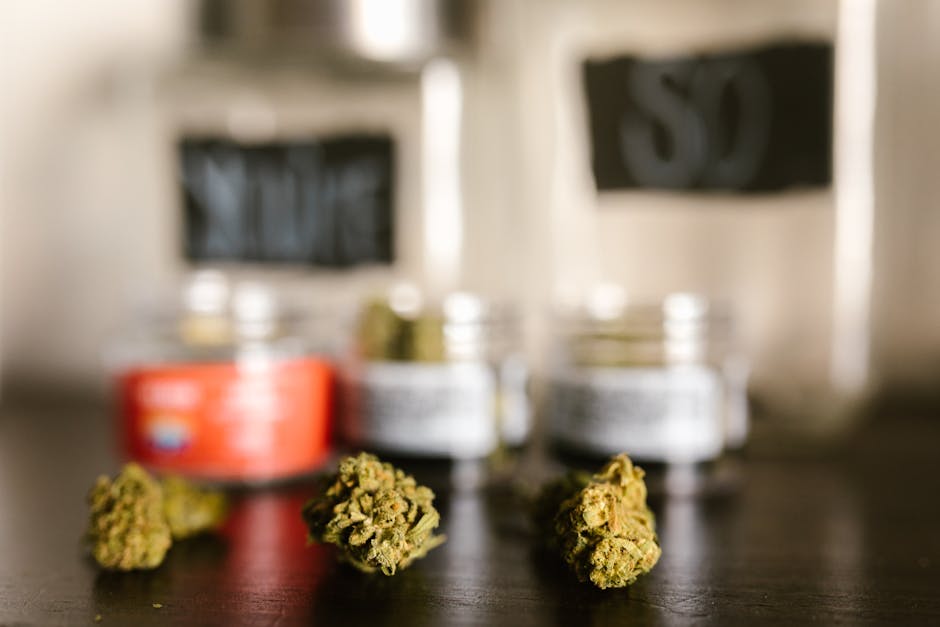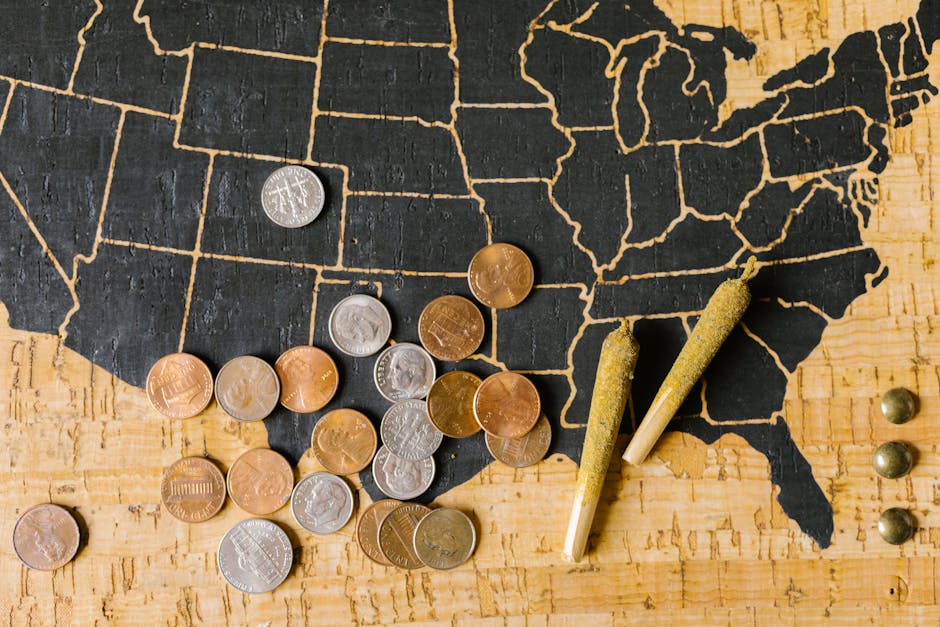Is 'No Medical Card Needed' the Future? A Legal Perspective

No medical card needed is increasingly becoming a reality in the rapidly evolving landscape of legal cannabis, making it easier for consumers to access their favorite products without jumping through hoops. This shift is driven by:
- Expanding legalization initiatives across states.
- A growing demand for accessible and high-quality cannabis products.
- The evolution of hemp-derived products like Delta-8 THC, which sidestep traditional marijuana laws.
The "no medical card needed" model simplifies access and aligns with modern consumer expectations, which are centered on convenience and discretion. As more states accept recreational marijuana, dispensaries are witnessing a surge in demand as they cater to a broader audience, no longer limited by medical eligibility criteria.
I'm Max Shemesh, CEO of Zaleaf, a leader in delivering top-tier cannabinoid products. With my experience in this arena, I'm here to explore how this trend is reshaping access to cannabis—without the need for a medical card. Our mission at Zaleaf aligns with these developments, ensuring that you can enjoy legal, high-quality cannabis solutions effortlessly.

Basic No medical card needed vocab: - THC vape pens online - Third party lab tested - delta 8 pen
Understanding the Shift: No Medical Card Needed
The landscape of cannabis use in the U.S. is changing fast. More states are legalizing recreational marijuana, and adult-use laws are making it easier for people to buy cannabis without a medical card. This shift is driven by several factors.
Recreational Marijuana and Adult-Use Laws
States like Colorado, Washington, and New York have acceptd recreational marijuana. In these states, adults aged 21 and over can purchase cannabis legally without needing a medical card. This means you can walk into a dispensary with just a state-issued ID and buy products for personal use.

State Regulations and Differences
While the federal government still classifies marijuana as illegal, states have their own rules. These state regulations allow for recreational use, creating a patchwork of laws across the country. For example, New Jersey's Cannabis Regulatory Act permits recreational use, making it unnecessary to have a medical card there.
However, the rules are not the same everywhere. Some states have stricter regulations, and others only allow medical marijuana. This means check your state's current laws before purchasing.
The Impact of No Medical Card Needed
The "no medical card needed" trend is reshaping how people access cannabis. It removes barriers, making it more convenient for consumers to explore cannabis products. This accessibility is particularly significant for those who use cannabis occasionally and don't want to go through the medical card application process.
In summary, the move towards recreational marijuana and the relaxation of state regulations are making cannabis more accessible than ever. This shift is not just about convenience; it's about aligning with consumer expectations in a rapidly evolving market.
Legal Implications of Buying Without a Medical Card
As more states accept recreational marijuana, the legal landscape around cannabis is evolving. However, this shift brings a complex interplay between federal and state laws that can be confusing.
Federal vs State Laws
At the federal level, marijuana remains classified as a Schedule I drug under the Controlled Substances Act. This means it is considered to have a high potential for abuse and no accepted medical use. Despite this federal stance, many states have legalized marijuana for medical and recreational use, creating a patchwork of laws.
For instance, in New York, adults over 21 can purchase cannabis without a medical card at recreational dispensaries. However, crossing state lines with cannabis remains illegal due to federal laws. This discrepancy can lead to legal challenges, especially when transporting cannabis between states with different regulations.
THC Concentration and Legal Limits
THC, the psychoactive compound in cannabis, is a focal point in cannabis policy. Federal law prohibits marijuana products with more than 0.3% THC. However, state laws often allow higher concentrations for both medical and recreational use. This difference highlights the importance of understanding local regulations.
In states like New York, recreational users can purchase up to 3 ounces of cannabis flower. Knowing these limits is crucial to avoid legal repercussions. Over-purchasing can result in fines or other legal consequences.
Cannabis Policy and the Future
The evolving cannabis policy landscape is influenced by both state initiatives and federal recommendations. Recently, the Department of Health and Human Services suggested reclassifying marijuana as a Schedule III substance, which acknowledges its medicinal value. This recommendation could lead to significant changes in cannabis regulation, potentially easing some of the current federal restrictions.
In conclusion, while the trend of "no medical card needed" simplifies access to cannabis, it requires consumers to steer the intricate web of federal and state laws. Staying informed about THC limits and local regulations is essential for responsible and legal cannabis use.
The Role of THC-A and Other Legal Alternatives
As the cannabis industry evolves, THC-A and other legal alternatives are gaining popularity. These products offer a legal workaround for those seeking cannabis benefits without needing a medical card.
THC-A: A Legal Loophole?
THC-A, or tetrahydrocannabinolic acid, is a compound found in raw cannabis. It's gaining attention because it's not psychoactive until heated. This means that THC-A can be sold legally as long as it contains less than 0.3% THC, aligning with federal guidelines.
In various locations across the United States, shops are selling THC-A products without requiring a medical card. As James Funk, owner of Slackers Supply, explains, "THC-A tests like hemp... but when I light it on fire and smoke it, my lungs say, ‘This is weed.’"
Delta-8 THC: Another Option
Delta-8 THC is another alternative riding the wave of legality under the 2018 Farm Bill. This bill legalized hemp products with less than 0.3% Delta-9 THC, inadvertently opening the door for Delta-8 THC products. Users report a milder high compared to Delta-9 THC, making it an attractive option for those seeking a less intense experience.
However, there are concerns about the safety and transparency of Delta-8 products. Robert Welch from the National Center for Cannabis Research and Education warns that these products are often synthesized and may contain unknown substances.
The Impact of the Farm Bill
The 2018 Farm Bill has been a game-changer for cannabis derivatives. By defining hemp as cannabis with less than 0.3% THC, it allowed the production and sale of various cannabis compounds, including THC-A and Delta-8 THC. This has led to a surge in products marketed as legal highs without the need for a medical card.
While these alternatives provide more options, consumers should be cautious. Not all products are created equal, and transparency about sourcing and content is crucial for safety.
In summary, the rise of THC-A and Delta-8 THC highlights the shifting landscape of cannabis legality. These alternatives offer legal access without a medical card, but consumers must steer the market carefully to ensure they're getting safe and legitimate products.
Frequently Asked Questions about No Medical Card Needed
Do you need a med card in New Jersey?
In New Jersey, the New Jersey Cannabis Regulatory Act has paved the way for adults to purchase recreational cannabis without a medical card. This means that if you're 21 or older, you can legally buy cannabis for personal use from licensed dispensaries. The state has acceptd recreational cannabis, allowing for broader access without the need for medical documentation.
Can you buy cannabis in New York without a med card?
Yes, you can! In New York, the cannabis laws have been updated to allow adults over 21 to purchase recreational cannabis without a med card. The state has set up a registry of licensed recreational dispensaries where you can buy cannabis products legally. Just remember to carry a government-issued ID to verify your age when purchasing.
What are the benefits of having a med card?
While recreational cannabis is accessible, there are still benefits to having a medical marijuana card. Here's what a med card can offer:
-
Lower Costs: Medical cannabis often comes with reduced sales taxes compared to recreational products, making it more affordable for regular users.
-
Higher Purchase Limits: With a med card, you may have access to higher purchase limits, allowing you to buy larger quantities at once compared to recreational users.
These advantages make a med card a valuable option for those who use cannabis for therapeutic purposes and need regular access at a lower cost.
Conclusion
As the landscape of cannabis legalization continues to evolve, consumers are seeing more opportunities to access cannabis products without the need for a medical card. This shift is driven by the growing acceptance of recreational cannabis and changes in state laws that allow adults to purchase cannabis freely.
At Zaleaf, we are committed to offering 100% legal cannabis products that cater to this new era of accessibility. Our products are crafted with improved cannabinoid and terpene profiles to deliver mood-specific effects, ensuring that our customers have access to high-quality options without the hassle of obtaining a medical card. Plus, with our fast shipping and discrete packaging, you can enjoy a seamless shopping experience from the comfort of your home.
Importantly, all our products undergo rigorous third-party testing to guarantee safety and quality. This commitment to transparency and excellence means you can trust Zaleaf for your cannabis needs, whether you're exploring Delta-8 THC or other legal alternatives.
For those interested in exploring our range of products, we invite you to visit our service page to learn more about what we offer. With Zaleaf, embracing the future of no medical card needed is not just a possibility—it's a reality.

